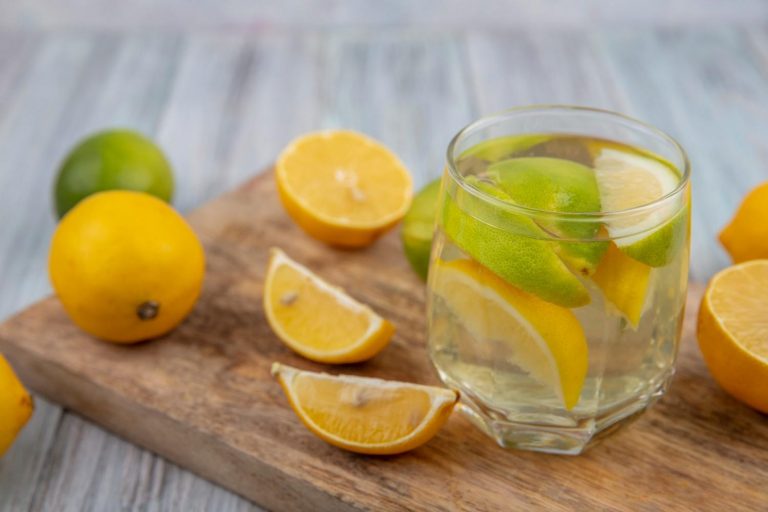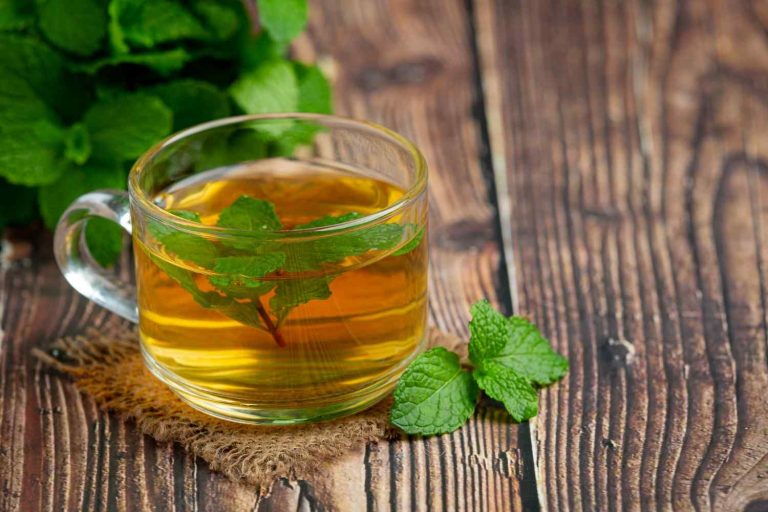Contents
Brain Focus Foods: Eat Smart, Remember More
Brain focus foods are the handful of ingredients that actually change how your mind performs. They aren’t magic. They are nourishment that sharpens attention, protects memory, and gives you clearer thinking when you need it most. If you care about your work, your relationships, or simply being present in your life, these foods matter.
I’ve spent years watching what real people eat and how they feel. I’m not selling miracle cures. I’m sharing what works, backed by common-sense nutrition and solid research from credible institutions like the National Institutes of Health and university studies. You will get practical choices you can make today.
Why Food Changes Your Mind
Food is not just fuel. It’s the chemical conversation your brain needs to make memories, focus on tasks, and regulate mood.
Omega-3s build cell membranes in neurons. Antioxidants reduce the slow burn of inflammation that dulls thinking. B vitamins keep energy flowing. When you feed your brain the right way, it rewards you with sharper recall and steadier focus.
Researchers at Harvard and the American Journal of Clinical Nutrition have shown that dietary patterns rich in whole foods, fish, vegetables, nuts, and olive oil, support cognitive health over years. That’s not a theory. It’s experience translated into evidence.
How To Use This List
This article gives seven easy, specific choices. Each section explains the benefit, shows how to eat it, and gives a quick recipe or swap. No fluff. Just the food, the benefit, and how to make it part of your life.
1. Wild Fatty Fish For Memory And Mood
Fatty fish like salmon, sardines, and mackerel are first on the list for a reason. They are rich in EPA and DHA, the omega-3 fats your brain needs for cell structure and communication.
Science: Long-term studies link higher intake of omega-3s with better memory and slower cognitive decline. The Alzheimer’s Association and several peer-reviewed journals report consistent findings.
How to eat it: Aim for two servings a week. Grill a salmon fillet with lemon and dill. Add sardines to a salad. Choose wild or sustainably farmed sources.
Quick tip: If you don’t eat fish, a high-quality algae-based omega-3 supplement covers DHA without the fishy aftertaste.
2. Blueberries And Berries For Sharp Recall
Berries are tiny packages of antioxidants and flavonoids. They reduce oxidative stress and help the brain form new neural connections.
Benefits: Studies show regular berry consumption improves short-term memory and reaction time in older adults. The effect is subtle but cumulative.
How to eat it: Add a handful to your morning yogurt, smoothie, or oatmeal. Freeze a bag of mixed berries for quick use.
Simple recipe: Blend blueberries, yogurt, a banana, and a splash of orange juice for a focus-boosting smoothie.
3. Leafy Greens For Long-Term Brain Health
Spinach, kale, collards, these greens are loaded with folate, vitamin K, lutein, and beta-carotene. They protect cellular health and support cognitive longevity.
Evidence: Large observational studies from top universities found people who eat leafy greens daily have slower cognitive decline than those who don’t.
How to eat it: Toss greens into omelets, smoothies, and salads. Lightly sauté with garlic as a dinner side.
Make it simple: A daily handful of mixed greens in a salad or smoothie is an achievable habit that pays dividends over time.
4. Walnuts And Nuts For Concentration
Nuts are portable, shelf-stable, and rich in healthy fats, vitamin E, and polyphenols. Walnuts, in particular, resemble the brain and pack a powerful punch for cognition.
Why they work: Vitamin E protects cell membranes from oxidative damage. Regular nut intake is associated with better cognitive performance in middle-aged adults.
How to eat it: Snack on a small palmful mid-afternoon instead of reaching for sugar. Add chopped nuts to yogurt or steamed vegetables.
Practical swap: Trade your candy bar for a nut mix with walnuts, almonds, and a few dark chocolate chips.
5. Whole Grains For Steady Energy
Your brain runs on glucose, but it prefers a steady supply. Refined carbs spike and crash; whole grains deliver slow-release energy that supports sustained attention.
What to choose: Oats, quinoa, brown rice, farro, and whole-grain bread.
How to eat it: Start your day with steel-cut oats. Pack a quinoa salad for lunch. Replace white rice with brown rice or barley.
Research: Clinical trials show that breakfasts high in fiber from whole grains improve memory and attention through the morning.
6. Eggs For Neurotransmitter Support
Eggs are affordable and dense with nutrients your brain craves: choline, B12, and vitamin D. Choline is a building block for acetylcholine, a neurotransmitter vital for memory and mood.
Benefits: Studies find that higher choline intake supports memory performance, especially as people age.
How to eat it: Enjoy eggs any way, boiled, poached, scrambled with vegetables. Make egg muffins with spinach and peppers for grab-and-go breakfasts.
Quick tip: One egg a day can be a smart addition, particularly when paired with vegetables for fiber.
7. Olive Oil And The Mediterranean Method
Olive oil is not just for flavor. Extra-virgin olive oil supplies monounsaturated fats and polyphenols that protect the brain.
Lifestyle matters: The Mediterranean diet, heavy on olive oil, fish, veggies, legumes, nuts, and whole grains, consistently shows lower rates of cognitive decline in large, long-term studies.
How to eat it: Use olive oil for dressings, roasting vegetables, and finishing soups. Replace butter with olive oil where possible.
Simple daily habit: Drizzle a tablespoon of extra-virgin olive oil over roasted vegetables or whole grains for a delicious and brain-friendly boost.
How To Build A Brain-Focused Plate
Think balance. A brain-focused plate is simple: a lean protein or fish, a colorful vegetable, a whole grain, and a small serving of healthy fat.
Example plate:
– Grilled salmon or baked tofu.
– A big salad of mixed greens, blueberries, walnuts, and olive oil.
– A side of quinoa or farro.
Portion control: Keep the plate varied. You don’t need perfection, just consistency. Two to three brain-boosting meals each day will change how you think over weeks and months.
Timing And Practical Habits
When you eat matters as much as what you eat. Skipping meals or relying on sugary snacks sabotages attention. Aim for regular meals and a protein-rich breakfast to stabilize blood sugar.
Meal prep: Roast a tray of vegetables, cook a pot of grains, and portion nuts for snacks. Three hours a week of simple prep keeps good choices within reach.
Hydration: Don’t forget water. Mild dehydration reduces concentration. Keep a bottle nearby and sip throughout the day.
Common Questions And Real-World Tips
If you’re short on time, canned fish, frozen berries, and pre-washed greens are valid options. Supplements can fill gaps, think vitamin D, B12, and omega-3s, but food should be the foundation.
Watch the sugar: High-sugar diets are linked to poorer memory and brain inflammation. Swap sugary drinks for infused water or tea.
Listen to your body: If you notice better focus after certain foods, do more of them. Personal experience matters, and small wins compound.
Bottom Line
The foods you choose shape the sharpness of your mind. Eat fatty fish, berries, leafy greens, nuts, whole grains, eggs, and olive oil regularly and you will notice clearer thinking, steadier focus, and better memory.
This isn’t theoretical. It’s practical, evidence-informed advice you can use today. Start with one change, add berries to breakfast, swap refined carbs for whole grains, or put a piece of grilled salmon on your plate twice a week. Little steps become habits, and habits protect your brain for the long haul.
Be kind to your brain. Feed it well. It will return the favor.
Boldly, kindly, and with common sense, that’s how you sharpen a life.
FAQ
FAQ
Which single food helps focus the most?
There’s no single perfect food, but fatty fish is a top choice because omega-3 fats are directly involved in brain cell structure and signaling. Regular servings of salmon or sardines are a powerful, evidence-backed move.
Can supplements replace brain focus foods?
Supplements can help when your diet falls short, especially omega-3s, vitamin D, and B12. But whole foods provide a mix of nutrients and cofactors that supplements can’t fully replicate. Use supplements to support, not replace, real food.
How long before I notice improvements?
You can feel subtle changes in energy and focus within a week or two, especially if you cut sugar and add protein and whole grains. Noticeable memory benefits often take weeks to months as your brain rebuilds and inflammation decreases.
Are there foods to avoid for better focus?
Limit sugary drinks, highly processed snacks, and excessive refined carbs. These promote blood sugar swings and inflammation that interfere with concentration and memory.
Can kids benefit from brain focus foods?
Yes. Children’s brains are developing rapidly and respond well to omega-3s, whole grains, vegetables, and adequate protein. Healthy eating habits established early support learning and attention.
Bottom Line
Choose whole, nutrient-dense foods consistently, fatty fish, berries, leafy greens, nuts, whole grains, eggs, and olive oil. Small changes become lifelong gains. You don’t need a perfect diet. You need better choices, made often.
Eat well. Think well. Live well.
—
References
National Institutes of Health provides a summary of omega-3 fatty acids and their effects on brain health (http://www.nih.gov).
Harvard T.H. Chan School of Public Health offers research and guidance on the Mediterranean diet and cognitive function (http://www.hsph.harvard.edu).
The Alzheimer’s Association summarizes evidence linking diet patterns and cognitive decline, including studies on leafy greens and berries (http://www.alz.org).
The American Journal of Clinical Nutrition publishes peer-reviewed studies on whole grains and cognitive performance (http://www.ajcn.org).
The National Library of Medicine houses PubMed, a searchable database of clinical trials and reviews on nutrition and brain health (http://www.ncbi.nlm.nih.gov).
Get Your FREE Natural Health Guide!
Subscribe now and receive our exclusive ebook packed with natural health tips, practical wellness advice, and easy lifestyle changes, delivered straight to your inbox.




